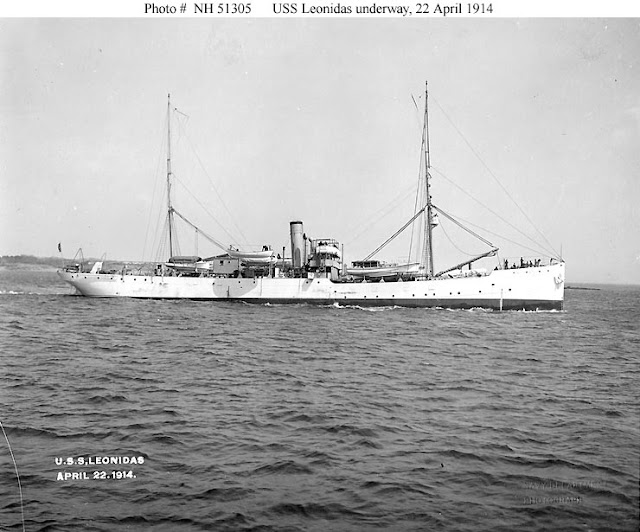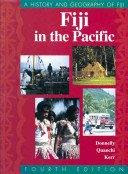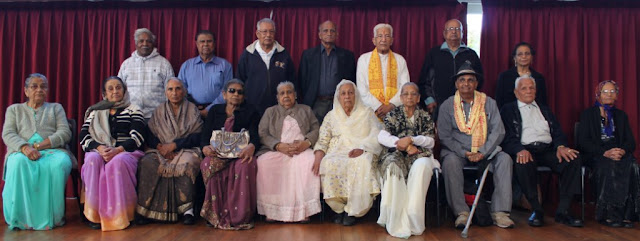SAVUA ENQUIRY-PART 4: Police helped in looting Muaniweni Indo Fijian
farmers and Transported Arms from Military to Rebels
Thakur Ranjit Singh,
Auckland, New Zealand
Summary of PART 3: Savua had packed to shift to
PM’s office and used police resources for treason.
In Part 3 you read how Savua had cleared and packed, expecting to become Fiji's Prime Minister after deposing
Mahendra Chaudhry. He abused police resources to commit treason. He had all the
resources at his disposal to control riots and bring peace, but he had other ideas.
All the available evidence speaks about his dereliction, in fact negligence of duties
and grave gross misconduct.
Yet, he was found innocent by a Kangaroo Court, manipulated to support the nationalist
elements and Qarase's regime. This court, held in camera, was a fraud on the
people of Fiji. (I, as Publisher of the Daily Post, which had published this article in May, 2001, was asked to withdraw these comments and apologise to Justice Tuivaga. I refused to do that and as a result, lost my job)
THIS CONCLUDING PART 4 reveals how police helped looting Indo-Fijian
farmers in Muaniweni, Naitasiri, Fiji and also helped steal and transport arms
from Military camp to the rebels in Parliament. If you have not read three previous parts, please
go back to FIJI PUNDIT or these Facebook, or refer to my Timeline pages and catch up on those stories that no Fiji papers or journalists have ever
reported on these dark untold history.
These are very revealing information after being
first published in Fiji’s Daily Post
in May, 2000 under pseudo name of Liu Muri/Aage Picche.
 |
Former Commissioner of Police Isikia Savua, who is no more-he passed away in 2011. However, he left behind many unanswered questions. He also contributed in shaming a once proud police force of Fiji by using the Police resources for his personal political ambitions.
|
HERE IS THE CONCLUDING PART 4
COMMISSIONER’S INVOLVEMENT AFTER THE
TAKEOVER OF PARLIAMENT
Support
for the Rebels
On the day of the coup, opposition MP and a minister in
the Speight government, Saimoni Kaitani said "it’s only a matter of time
before the police and army pledge their support to the rebels". There were a number of similar instances in which the support for the Police Commissioner
and his chosen officers were demonstrated through such statements.
One Police Officer told that the Police were involved in
the transportation of arms to the Parliamentary complex following the takeover
of the Parliament. He states:
I wish to add that on Saturday 20.5.00 at about
0230 hours whilst we were putting up the road block opposite the Lighthouse
Restaurant (in Nasese) when police vehicle F/171 arrived with SP. M. The
rotating lights were on as they were escorting another Government vehicle. I
went over to check and found that the said vehicle was fully loaded with arms.
I opened the road block as instructed by SP. M. because he said he was under
orders from higher up and they went up to the Parliament house.
It was clear from this that the arms cartage to
the Parliament complex in this car were authorised by the Police Commissioner.
These arms were to be used to reinforce the armaments available to the
terrorists, as they had feared an attack by the Fiji Military Forces.
Abuse
of police vehicles and resources
Mr. Savua had given instructions for the use of a
police vehicle to convey dalo and meat from Muaniweni for the rebels holding
the Government hostage.
One Inspector was on duty at the command centre on
the day of the alleged incident. The
same Inspector was chosen by Mr. Savua to go for peacekeeping duty in Solomon
Islands when the issue of cattle theft and unlawful use of police vehicle was
highlighted in the news media but was stopped from leaving the country by the
military at that time.
A statement by one ASP regarding the above
incident:
On the 28th of May
… I reported to duty to takeover from ASP .y. - the 7-7 Unit Commander.
The (Police) transport was poor during the takeover. ASP y.. advised me that
the Commissioner of Police had directed that a police vehicle be sent to the
Parliament at 0600 hours on the morning of 29th May (2000) to be used by George
Speight's men to convey some cattle and root crops from Savu, Naitasiri (Muaniweni)
to the Parliament. I directed SPC to be ready to take the Canter truck to
Parliament in the morning… At 0455 SC moved out F/49 (Canter Truck) to
Delainavesi to pick SCS.. who will then drive to Parliament to pick Mr
Speight's men for the Savu trip to get the cattle and root crops for Speight's
men and his supporters. Note the sending of F/49 and the Police driver was in
line with the instructions given by the Commissioner of Police to ASP y...
At 0630 hours, I rang parliament to confirm
whether the Police Truck had arrived. I spoke to one Mr. Dakai who confirmed
that a truck and a police driver had arrived for the trip to Savu and thanked
me for it. I made notes of the above instructions in my note book from the 28/5
to 29/5.

|
The rebels supported by Savua, who terrorised Fiji for almost two months in 2000 until crushed by Fiji Military which brought law and order when even police were rendered helpless under a poor and ineffective Commissioner Savua.
SPC .z. who was the driver for the Police Vehicle on the day said that:
|
On the morning of 29th May, 2000, I was picked
from my house by SC P.. in this vehicle at 0530 hours. We went to Nasese
transport pool where SC P.. told me to drive F/49 to Parliament and pick some
George Speight's men and take them to Muaniweni to pick some food stuff. I drove
down to Parliament where Police force vehicle was waiting for me to confirm my
going. The Policeman asked me if I was going to pick the food for the rebels
from Muaniweni. I said yes and they drove off again.
The Parliament gate guard
asked me where I was going. I replied I was sent by the Commissioner to see
Rinakama (an MP supporting George Speight) about the food to be picked from
Muaniweni. The guard opened the Parliament gate and allowed F/49 inside. Then
Mr Rinakama came and told me to take the Naitasiri men to bring the food. Then
while parking at the Parliament complex, 8 Fijian men from Naitasiri came and
told me to go to Muaniweni where Tomasi Vosalevu is waiting.
We drove … right
to Muaniweni Indian School. At the school Vosalevu was waiting with a heap of
dalo and carcass of cattle meat. The food stuff and meat was loaded and
Vosalevu said to drive further and wait for him. When I came where he was, a
cattle was slaughtered in the middle of the road. The men at the back loaded
the cattle at the back of the Police truck.
We then drove back to the
Parliament where we arrived at 11 am… The supporters of George Speight and his
men came and shook my hand for the Police support and cheered for the Police
Truck.
The Police Commissioner knew very well that Savu
Road leads to Muaniweni where most of the looting of crops and cattle by
Speight's supporters during this period was occurring. This was well reported
through local and international media coverage during that week. I, Thakur Ranjit Singh, the then Publisher of the Daily Post can vouch for this as I visited the area with a Daily Post team, and personally saw the result of looting and reported on the terrorised Indo Fijians who were forced to sleep in the bush with their small children because of thuggery of Itaukei thugs.
Local radio
and newspapers had also raised concern that much of the looted crops and cattle
were being transported to the Parliament. These reports had already been lodged
with the Police both in Suva and in Nausori.
The looting, burning and stealing in this region
was spearheaded by Tomasi Vosalevu - also known as Ratu Malimali (involved in a
bank robbery and was on bail at the time) who was in the Parliament for much of
the week.
Ratu Malimali was supposed to have organised
everything (looting, burning etc) down here (Muaniweni)… his lorries were used
to transport stolen root crops and cattle to the parliament complex during the first ten days after the coup.

|
The looted and robbed farmers at Muaniweni: they were looted in Police vehicles by criminal elements working for Speight and Savua. One wonders how the Kangaroo court of Justice Tuivaga cleared Savua
|
It was because of the complicity between the
Police and those who were involved in the looting, burning and violence that families
fled Muaniweni during this period to live in the refugee camp at Fiji Girmit Centre in Lautoka. The
Police Commissioner must be held directly responsible for this.
The Commissioner of Police's instructions to
provide a police transport and police resources to terrorists who were holding
the legitimate, constitutional government hostage is nothing short of a
treasonous act. It was a source of great encouragement to them. His actions to
provide official transport to cart food that was violently and forcibly taken
from isolated rural households is an unpardonable capital offence as well -
demonstrating a frightening complicity between the Commissioner and the
terrorists who were holding the Constitutional Government hostage.
This
instance of providing official transport and support to organize the cartage of
food demonstrates a most frightening complicity between the Police Commissioner
and some of the most dangerous criminal elements who were behind some of the
worst violence to be seen in this country recently. Then how was Savua cleared by the Kangaroo Court headed by Justice Tuivaga?
[For a corroborating story on
this, read FIJI PUNDIT on violence on Indo Fijians. This story was covered by Thakur
Ranjit Singh in Fiji’s Daily Post on
Muaniweni looting of Indo- Fijians by Police officers on Police vehicles in
May, 2000.
This will be republished for information to the new generation of Itaukei of Muaniweni to see what their elders did 21 years ago. See the link:
Police
Conference
Savua came under criticism for attending a police
chief’s conference in Vanuatu at the height of the crisis. Why did he not send
another officer to Vanuatu as in previous years? Did Savua channel overseas
funds to support the takeover of the parliament during this trip? Is Savua
allowed under Fiji laws to have a personal bank account in an overseas tax
haven? Were large deposits made into his account between April 2000 and July
2000?
Vanuatu is a tax haven and Police inquiries into the
involvement of a number of overseas business interests were continuing then. Of
special interest are the triad gangs who have operated with some immunity until
the recent drug bust up. It had been reported that these gangs enjoyed some
protection from the Police during the period when Savua was the Commissioner.
Meeting
with the Rebels
The rebel group met Mr. Savua on the 21/7/00 at
the Nabua Police Station. We were reliably informed that they discussed a new
lineup for the interim government and Savua's role within it.
The rebels even during periods of curfew had
access to the Police Commissioner.
 |
The name and honour of once proud police force of Fiji has been tarnished by extremely poor leadership and performance under Savua.
|
One officer informed that:
On the night when the Central Police Station (CPS)
was under attack by the rebels, all lights at the CPS were turned off (with the
exception of the Command Centre light where the Commissioner was at the time).
In the darkness and uncertainty, Major Savua (a soldier, the Commissioner's brother who
was inside the parliamentary complex) entered his room and held private
discussions with the Commissioner. Following these discussions, the
Commissioner asked that the Police truck be provided to cart food for the
rebels from the Savu area. All officers who took part in a parade just after
the rebel attack on CPS and greater Suva area heard this instruction very
clearly.
CONCLUDING REMARKS
The events noted here have demonstrated that the
Police Commissioner had failed in his constitutional duty, oath and obligation
to uphold the rule of law and protect the constitutional government.
Indeed, he had actively used the police forces to
support the takeover and overthrow of the democratic and constitutional government.
His motivation was quite clear from the accounts presented here - he wanted to
be an important part of a new government to emerge from the takeover of the
parliament. To this end, he had used and manipulated police officers and
resources to support the actions of the terrorists who took over the parliament
on May the 19th, 2000.
Through his deliberate actions, important arms of
the police forces were rendered incapable of preemptively dealing with the
takeover and the violence and rioting that ensued subsequently. His actions
had done great damage to a professional and generally hard working, committed
and loyal Police Force in the country.
From the evidence presented here, we are convinced
that the Police Commissioner should have been subjected to trial for both treason and
other capital offences arising from his actions. The Commission charged with
the Tuivaga inquiry should be recognized as a fraud orchestrated by the
Commissioner's cronies in the Interim Government, headed by Laisenia Qarase,
who later tasted power and formed SDL Party to come to power through democratic
process. This included elements within
the judiciary and the Public Service Commission who had been associated with
the attempt to abrogate the Constitution of Fiji Islands and confer some
legitimacy to the Interim Government through that.

|
Fijian Prime Minister, Commodore Frank Bainimarama, who removed Qarase for abusing democratic powers and processes and working with ethno-nationalist elements like Savua and treasonous rebels. Western Democracy appears to have failed in Fiji and perhaps Fiji needs a home-grown solution to its fundamental problems. These articles were written to expose outside world with Fiji-type of conspiracy and problems and why Military have to adopt strong-arm controls to handle people with nationalistic and manipulative tendencies.
|
ENDNOTE
All these took place when a supposedly clean and
honest banker, Laisenia Qarase was appointed by Bainimarama as the Interim Prime
Minister, who obviously tasted power and worked in cahoots with the ethno-nationalist
elements. Qarase, subsequently formed SDL Political Party and came to power,
and started abusing democratic processes to introduce racist policies and
persecute Indo-Fijians through questionable laws and policies.
Frank
Bainimarama gave advance warning to Laisenia Qarase to improve his governance
and remove extreme-nationalism and racism from SDL policies and proposed laws.
Qarase ignored Bainimarama threats at this own peril, and as warned, was
unceremoniously deposed by military on 6 December, 2006. The rest is history.
Overseas community need to read and appreciate
these articles and see what the military has to contend with. Any strong-arm
tactic and tight controls on media and freedom are to stop the rot of
ethno-nationalism repeat in Fiji. Democracy in Fiji is developing, as we need a
home-grown solution to our fundamental problems and issues. It is hoped series
of these articles help you better understand and appreciate the problems and
issues in Fiji.[This was view 20 years ago in May, 2001]
Thakur Ranjit Singh
[About the author: Thakur Ranjit Singh is a journalist and media commentator and runs his blog site, FIJI PUNDIT, that tells what others fail to tell. He is a former publisher of Fiji's Daily Post newspaper, and is based in Auckland, New Zealand. This article was originally written and published in the Daily Post in May, 2001 under the column Liu Muri by Aage Picche. This is intended as a historical reminder of our dark past.]
xxxxxxxxxxxxxxxxxxxxxxxxxxxxxxxxxxxxxxxxxxxxxxxxxxxxxxxxxxxxxxx
























